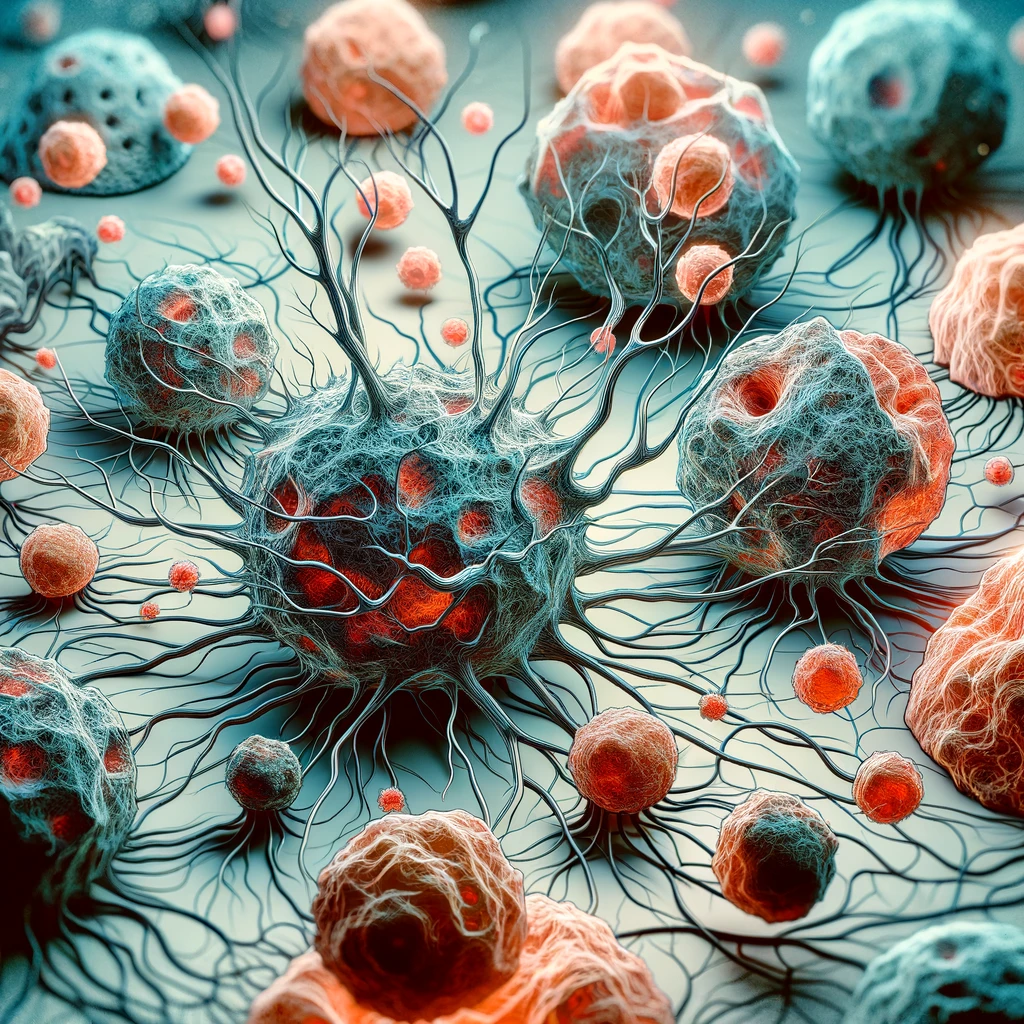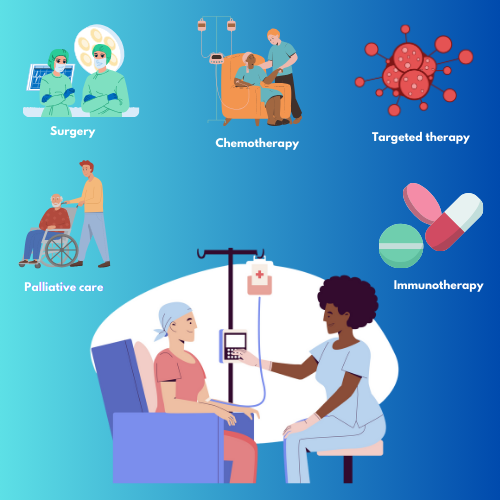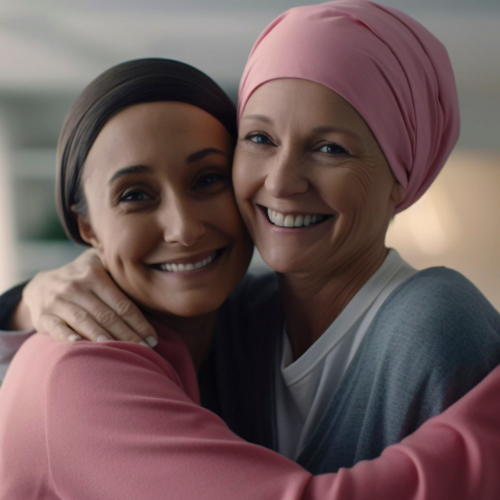Pioneering Dendritic Cell Therapy Promises Breakthrough in Cancer Treatment | Batala, Punjab, India
Experience the transformative power of dendritic cell therapy in the fight against cancer at DynamismBatala, Punjab, India. Discover cutting-edge treatment options and innovative approaches to combating cancer through our personalized and groundbreaking therapies. Empower your body's natural defenses with dendritic cell therapy, revolutionizing the landscape of cancer treatment. Unleash the potential within, only at DynamismBatala.
Pioneering Lymphoid Cellular Strategy Unveiled in Cancer Research
Dendritic cell therapy represents a promising frontier in cancer immunotherapy, leveraging the body's immune system to combat malignancies. Dendritic cells are pivotal in the immune response, acting as antigen-presenting cells that can initiate and regulate the adaptive immune response. In dendritic cell therapy, these cells are harvested from a patient’s blood, cultured, and exposed to tumor antigens in vitro. This process effectively "teaches" the dendritic cells to recognize cancer cells. Once these dendritic cells are reintroduced into the patient's body, they present the tumor antigens to T-cells, thereby stimulating a targeted immune response against the cancer. High-impact factor journals have documented the potential of dendritic cell therapy to induce robust and specific anti-tumor immunity. This approach is particularly appealing due to its ability to tailor the immune response to the unique antigenic profile of an individual's tumor, offering a personalized treatment strategy. Additionally, dendritic cell therapy is being explored in conjunction with other therapeutic modalities, including checkpoint inhibitors and traditional treatments like chemotherapy and radiation, to enhance overall treatment efficacy. Current research focuses on optimizing the antigen-loading process, improving dendritic cell maturation protocols, and identifying the most effective combinations with other therapies. As an innovative immunotherapeutic strategy, dendritic cell therapy continues to be the subject of extensive clinical and preclinical investigations, underscoring its potential role in the future of oncology.
Benefits:
- Personalized Treatment: Dendritic cell therapy can be tailored to the unique antigenic profile of a patient's tumor, providing a highly personalized treatment approach. By using the patient’s own cells, this therapy ensures a targeted and specific immune response against cancer cells.
- Stimulates Robust Immune Response: High-impact factor journals have highlighted that dendritic cell therapy effectively stimulates a strong and specific anti-tumor immune response. The therapy leverages the body's natural defense mechanisms to recognize and attack cancer cells.
- Potential for Long-term Immunity: This therapy not only targets existing cancer cells but also has the potential to create a long-lasting immune memory. This means that the immune system could potentially recognize and attack cancer cells if they reappear, reducing the likelihood of relapse.
- Combination with Other Treatments: Dendritic cell therapy can be effectively combined with other treatments such as checkpoint inhibitors, chemotherapy, and radiation therapy. This combination can enhance the overall efficacy of cancer treatment by addressing the tumor through multiple mechanisms.
- Reduced Side Effects: Compared to traditional cancer treatments like chemotherapy and radiation, dendritic cell therapy is generally associated with fewer side effects. Since it utilizes the body's own immune cells, it is less likely to cause the systemic toxicity often seen with conventional therapies.
Affordable Immunotherapy Treatment options:
Unraveling the intricacies of dendritic cell therapy in oncology

Dendritic cell therapy is an advanced form of immunotherapy that harnesses the power of the body’s immune system to fight cancer. The process begins with the extraction of dendritic cells from the patient’s blood. Dendritic cells are key players in the immune system, acting as messengers that present antigens to T-cells, thus initiating an immune response. Once isolated, these cells are cultured in vitro under specific conditions to enhance their maturation and function. In the laboratory, the dendritic cells are exposed to tumor antigens—specific proteins or fragments derived from the patient’s cancer cells. This exposure effectively “trains” the dendritic cells to recognize and process these antigens. Once back in the body, the dendritic cells travel to the lymph nodes, where they present the tumor antigens to T-cells. This presentation activates the T-cells, converting them into cytotoxic T lymphocytes (CTLs). CTLs are crucial in the immune response against cancer, as they are specifically programmed to seek out and destroy cells expressing the tumor antigens. This targeted action helps in attacking the cancer cells while sparing normal cells, reducing the collateral damage commonly associated with conventional therapies.
Furthermore, dendritic cell therapy can help in creating a memory response, enabling the immune system to recognize and attack the cancer cells if they return. The therapy can be combined with other treatments like checkpoint inhibitors to enhance the immune response, as documented in high-impact journals. This multi-faceted approach is designed to provide a robust and sustained anti-cancer response, making dendritic cell therapy a promising avenue in the fight against cancer.
Dendritic cell therapy and precision oncology:
Dendritic cell therapy is integral to precision oncology, offering a tailored approach to cancer treatment by leveraging the patient's unique genetic and molecular profile. This therapy begins with a genetic analysis of the tumor to identify specific antigens and mutations. Dendritic cells are extracted from the patient, cultured, and exposed to these tumor-specific antigens, training them to recognize and target cancer cells. Once reintroduced into the body, these dendritic cells activate T-cells to seek out and destroy cancer cells with high specificity. This precise targeting minimizes damage to healthy cells, enhancing therapeutic efficacy and reducing side effects. This personalized approach can be combined with other treatments, such as checkpoint inhibitors, to improve outcomes and support long-term immune surveillance, embodying the future of personalized cancer care.
Tailored Treatment Solutions:
Revitalizing Oncology: The Art of Healing Cancer's Lifeblood Dynamo

Conventional Medical Treatments:
- Surgery: Involves the removal of tumors or cancerous tissues from the body.
- Chemotherapy: Utilizes drugs to kill or slow the growth of cancer cells.
- Radiation Therapy: Employs high-energy rays to target and destroy cancer cells.
- Immunotherapy: Enhances the body’s immune system to identify and fight cancer cells.
- Dendritic Cell Therapy: Involves training the patient's dendritic cells to recognize and attack cancer cells, boosting the immune system's ability to fight cancer.
- Checkpoint Inhibitors: Block proteins that prevent immune cells from attacking cancer, enhancing the body's immune response against tumors.
- Cancer Vaccines: Stimulate the immune system to recognize and combat cancer cells, aiming to prevent cancer development or recurrence.
- Monoclonal Antibodies: Lab-created molecules that can specifically target and bind to cancer cells, marking them for destruction by the immune system.
- mRNA Vaccines: Use synthetic messenger RNA to instruct cells to produce an antigen that triggers an immune response against cancer cells.
- Targeted Therapy: Uses drugs that specifically target cancer-related genes or proteins to inhibit cancer growth.
Integrative Treatments:
- IV Vitamin C Therapy: Involves administering high doses of vitamin C directly into the bloodstream via intravenous infusion. This therapy is believed to boost the immune system, reduce inflammation, and potentially slow cancer cell growth.
- Hydrogen Inhalation Therapy: Entails breathing molecular hydrogen gas to neutralize harmful free radicals in the body, reducing oxidative stress and inflammation, potentially supporting cancer treatment.
- Hyperbaric Oxygen Therapy (HBOT): Involves breathing pure oxygen in a pressurized chamber, increasing oxygen levels in the blood and tissues. This promotes healing and reduces inflammation, potentially benefiting cancer patients by improving treatment outcomes.
- Mistletoe Therapy: Utilizes extracts from the mistletoe plant, administered via injections or infusions. It aims to stimulate the immune system and may inhibit tumor growth, potentially improving quality of life for cancer patients.
- Hyperthermia Treatment: Raises body tissue temperature to damage cancer cells while sparing normal cells. This treatment can enhance the effectiveness of other cancer therapies and contribute to improved treatment outcomes.
- Ayurvedic Treatment: Incorporates herbal medicines, dietary recommendations, detoxification processes, yoga, meditation, and massage to support the body's natural defenses, alleviate treatment side effects, and enhance overall well-being during cancer treatment.
Complementary Therapies:
- Nutritional Support: Provides customized dietary plans to fortify the body, manage side effects, and improve overall health.
- Acupuncture: Focuses on relieving pain, nausea, and other cancer treatment side effects by inserting thin needles into specific points on the body.
- Meditation: Involves practices to calm the mind and reduce stress.
- Yoga: Combines physical postures, breathing exercises, and meditation to improve physical and mental well-being.
- Relaxation Techniques: Includes methods like deep breathing exercises and guided imagery to reduce stress and enhance emotional health.
- Physical Therapy: Aims to maintain and enhance physical function and mobility throughout the cancer treatment process.
Affordable Integrative Cancer Care:
Dynamic Approach Offered: Opt for Our Revolutionary Therapy

Opting for treatment at Art of Healing Cancer provides cancer patients with access to a cutting-edge facility that seamlessly integrates a variety of treatment modalities. We are renowned for blending the precision of contemporary oncology with the innovative approach of dendritic cell therapy. Our focus extends beyond merely eradicating cancer cells; we prioritize your overall well-being. At Art of Healing Cancer, we excel in personalized cancer care. We develop individualized treatment plans through comprehensive genetic analysis of your tumor, tailoring therapies to your specific cancer profile. This personalized approach ensures that each patient receives the most effective and targeted treatment available. In addition to conventional treatments, we integrate advanced therapies such as dendritic cell therapy, nutraceuticals, hyperthermia, and hyperbaric oxygen therapy. These advanced treatments complement traditional methods, enhancing their effectiveness and improving patient outcomes. By merging these diverse therapies within a precision oncology framework, we provide a thorough, patient-centered approach to cancer care. Our multidisciplinary team is dedicated to combining the strengths of medical science with holistic care. This team includes oncologists, naturopaths, nutritionists, and therapists who work together to support every aspect of your health. This collaborative approach ensures that all your needs are met with the highest level of expertise and compassion. Choosing Art of Healing Cancer means opting for innovative, effective, and empathetic treatment. Our commitment to integrating diverse therapies and focusing on personalized care makes us a prime choice for those seeking comprehensive and compassionate care for cancer.
